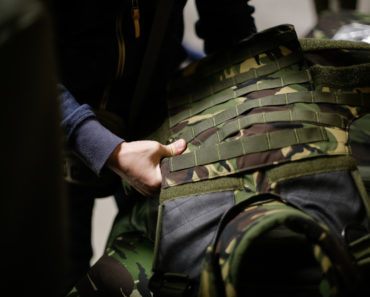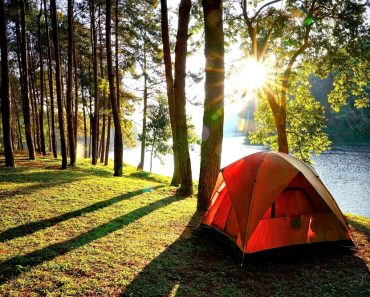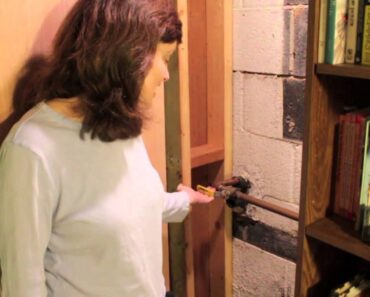The great football coach of the Green Bay Packers, Vince Lombardi, was known for this. At the beginning of summer camp, during his second year as head coach for the Packers, Lombardi when into the locker room with a football in his hand and told his team of professional ballplayers, “Gentlemen, this is a football.”
Did Lombardi think that his team didn’t know what a football was? No. Lombardi knew that for the big things to come together and work, you have to start with the fundamentals, the little things that everyone assumes are common knowledge but are often overlooked. By his constant attention to detail, going back to the basics repeatedly, Lombardi built a legendary team that won five NFL Championships in seven years.
Just like Lombardi, we need to build a winning team. It’s just that the team we’re building has to win at the most challenging game there is. There’s no rematch, and if we lose, there’s no game next week. The prize is survival, and the cost of losing is too much to pay. So we can’t afford to assume anything, and we can’t lose sight of the fundamentals. Some of these might surprise you.
For us, the fundamentals are a combination of knowing what our survival priorities are and how to meet those priorities. We obviously can’t complete the second of those without understanding the first, so let’s review that quickly.
- Our number one survival priority is oxygen; we can only live minutes without it.
- After that, we need to maintain our body’s core temperature. That mostly means avoiding hypothermia. To do that requires a combination of shelter, heating (fire), and clothing, as well as keeping that clothing dry – wet clothes don’t insulate). Hypothermia can kill in 15 to 30 minutes.
- Clean water comes next, as our bodies can only survive three to five days without it. However, we usually stick to the three-day side because making it to five days without water requires controlling the environment to the extent that we can’t do in a survival situation.
- Long after we might die of dehydration, there’s the risk of dying from starvation. The average American can survive from 30 to 100 days without food, depending on whose figures we use. But again, like with water, we must err on the side of caution. Besides, lack of food will affect both our energy levels and our cognitive ability.
- While those are the priorities that everyone talks about, we must add two things to the list: first-aid and self-defense. While we wouldn’t need either of those in an ideal situation, we can’t expect the situation we find ourselves in to be ideal. Lack of knowledge in either of these areas could kill us nearly instantly.
If we’re going to talk fundamentals, they must support one of those priorities in some way or another.
Learning blacksmithing might be great for a long-term survival situation where we need to e part of rebuilding society, but it’s not a fundamental survival skill. It would have to be considered an advanced skill. The same can be said for a long list of other valuable skills. But for right now, we’re going with Lombardi’s system and sticking to the fundamentals. That alone is a rather long list when you get down to it.
In reality, we should constantly be practicing these techniques, adding to our list of available skills. Looking for ways to apply your survival skills to everyday tasks can help you get more practice and save time on that practice. Many of our survival skills dovetail nicely with things that we do all the time, like starting a fire in the barbecue grille.
The list below may not be complete for your situation, as we face different climates and survival situations. But it should work pretty well as a basis to start with. Feel free to add whatever you want and to share that in the comments below.
Oxygen
There’s very little we can do about oxygen or the lack thereof. Should the world run out of oxygen, there’s not much any of us can do to survive. But we might find ourselves in a place where the air we breathe is dangerous or where the fire pulls the oxygen out of the air.
- Making an air filtration mask from available materials (think activated carbon)
- Where to find breathable air during a fire
- Gas masks and respirators, when to use them, and how to use them properly (including types of filters)
Maintaining Our Body Temperature
When we talk about maintaining our body temperature, we usually talk about keeping warm. But we must also consider cooling ourselves so that we don’t get heatstroke, especially if we live in a hot climate.
- Building a fire
- Starting a fire (the more methods, the better)
- Starting a fire in wet weather, including protecting that fire from wind and rain
- Finding dry wood amid a storm
- Getting the most benefit out of the fire
- What to do for fire when you’re not in the woods
- Making a variety of survival shelters out of available materials
- Finding refuge in the wild
- What to make a shelter out of when you’re not in the woods
- Keeping dry when it’s raining (What can you improvise a rain poncho from?)
- How to properly layer clothing
- Natural cooling techniques when it’s hot, and there’s no air conditioning
- Finding shelter in the wild
- What in nature can be used for cordage?
- Making clothing
- Tanning hides to make leather
- Making rawhide (excellent for shoe soles and cordage)
- Constructing or repairing shoes or some other foot protection
- Making fire starters and tinder
- Felling a tree and converting it into helpful wood
- Building a log cabin (at least in theory, if not from experience)
Clean Water
Once upon a time, we could safely drink naturally occurring groundwater, but no more. There is no water anywhere, which we can consider being safe to drink. Safe, of course, means free from microscopic pathogens, the things that can make us sick. Finding and purifying water is a constant, daily requirement in a survival situation.
- Finding water in urban areas
- Finding water in the wild
- Finding underground water in the wild
- Making a bio-filter
- Water purification techniques (the more, the merrier)
- Creating a rainwater capture system for use at home
- Creating an improvised rainwater capture system for use wherever
- Making a solar still
- Getting water from plants
- How to dig a well
Food
We all expect to live off our stockpiles or grow our food. Those are good options and should be part of what we do, but we shouldn’t limit ourselves to those possibilities. What will we do when our stockpile runs out, and we’ve had a time of drought? We need options that will work in those times too.
- How to package food for long-term storage
- Food preservation techniques include canning, dehydrating, smoking, and curing
- Hunting – both large and small game
- Making snares and traps from available materials in nature (this has to include baiting the snares and knowing where to put them)
- Skinning and butchering animals and birds
- Fishing
- Alternate fishing techniques (fish spear, set lines)
- Making fish traps
- Edible plant identification
- Alternative means of cooking (over the fire, solar, alternate cookware, etc.)
- Using seasonings to make unpalatable foods taste good
- Gardening
- Pruning trees for maximum yield
- Composting
- Natural pest control for your garden
- Animal husbandry
First-Aid
Injuries and illness are severe problems in any survival situation. We have become so accustomed to having a huge medical industry to help keep us well, but that probably won’t exist in a time of crisis. Even if it does, it will be seriously overworked, dealing with shortages of critical supplies and hard to get to without gas for our vehicles. The only medical attention that family members may be able to receive what we can give them.
- Basic first-aid
- Setting broken bones
- Disease and symptom recognition (this one’s tricky)
- Proper use of antibiotics
- Essential herbal medicine, especially natural antibiotics
- Alternative first-aid materials and how to make them safe to use
- Treating a sucking chest wound
- CPR
- Treating an injury with spurting blood (using a tourniquet, packing a wound, etc.)
- Cleaning debris out of a wound
- Building an outhouse or privy
- Natural pest control (pests can carry disease)
- Avoiding spreading disease (what would we do without masks and hand cleaner?)
- Bathing with minimal water
Self-Defense
While it would be hoped that we could all make it through any survival situation we encounter without the need to defend ourselves; that’s not something we can count on. as long as there are people, there will be bad people, as well as people who usually are good, but will do bad things when necessary for survival. It’s incredible what a hungry child will motivate people to do. So we’ve got to be ready to defend ourselves, just in case.
- Shooting accurately
- Tactical movement and shooting
- Establishing a defensive perimeter
- Group defense while moving
- Basic infantry tactics
- How to secure your home
- Using a variety of alternate weapons
- Making primitive weapons from whatever is available
Wilderness Survival
While I have mentioned a few things in the areas above that apply directly to wilderness survival, other necessary skills should be considered.
- Map reading and navigation
- How to transverse a variety of obstacles (crossing rivers, ravines, cliff faces, etc.)
- Setting up a camp (comfort, warmth, defense, and hygiene)
- Marking your trail (so you can be found or find your way out)
- Communications and signaling to call for help (signal mirror, whistle, etc.)
- Moving through the snow with minimal effort
Just Useful Skills
While these skills don’t apply to any of the categories above, they are valuable skills that will help you in a variety of survival situations, as well as in your day-to-day life.
- General carpentry and woodworking
- Mechanical repair (both vehicles and other devices)
- Moving stealthily while remaining hidden
- Becoming the “grey man.”
Building Your Skills
Hopefully, you already know all the skills on this list, but I’d just about bet that there are a few you don’t know. That’s okay; I’ve been at this for many years, and I’m still learning too. Some of these are things that we will need to keep learning just because of our changing circumstances. Others have so many aspects to them that we might never reach the end. The point is to keep working on improving the skills that we do have while continuing to learn new ones.
Keeping a list like this in your prepping notebook can be helpful, allowing you to check off learning new skills and reminding you of things that you need to review. As you go, you will probably find yourself adding to the list, including items particular to your needs or that of your family. Just because I didn’t mention something doesn’t mean that you don’t need to know it. Remember, I’m working on fundamentals here, not every skill that exists. It only makes sense that you would end up adding some specific skills that you find you need.
Fortunately for us, there’s a wealth of information available on the internet. You can find articles and videos teaching how to do everything on this list. Back when I started in survival, the internet didn’t even exist, let alone all the information that is stored there now. Before we could learn anything, we had to find the knowledge to know.




























